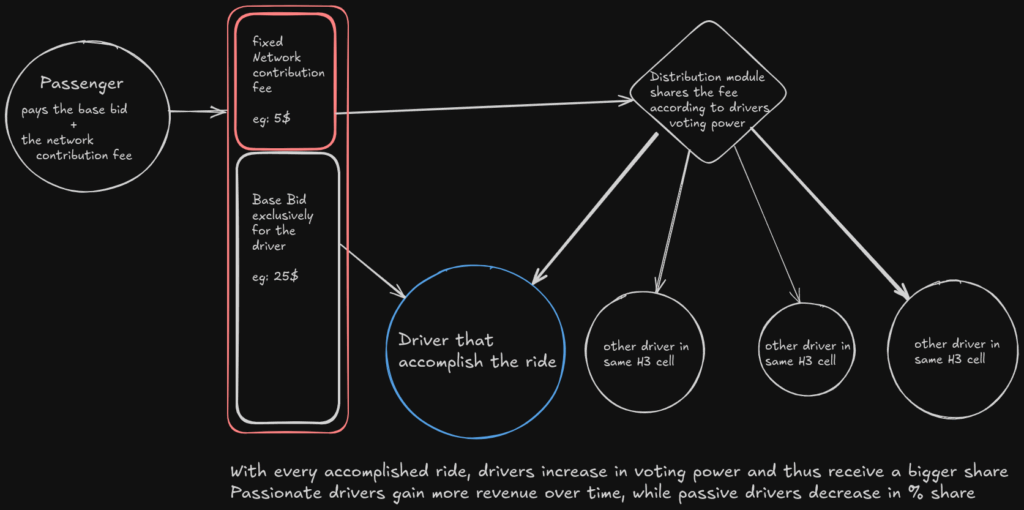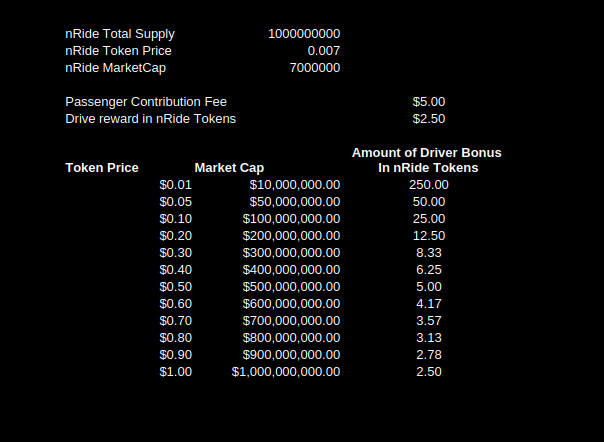
nRide Driver Incentive Simulation – Simplified
Focus on token rewards and voting power ratios between drivers
Simulation Parameters
Voting Power Distribution
Token Accumulation by Round
Driver Details
| Driver | Type | nRide Tokens | Voting Power (%) | Rides per day | Earnings Ratio |
|---|
How This Works
This simulation demonstrates how token rewards for active drivers impact voting power distribution over time:
- All drivers start with 1 token in round 1
- Active drivers complete rides and earn token rewards for each ride
- Passive drivers don’t complete rides and don’t earn token rewards
- Voting power is determined by token holdings (1 token = 1 vote)
- Earnings are distributed proportionally to voting power
Multi-Round Simulation
- Each round represents a period of time (e.g., a day or week)
- Active drivers complete their set number of rides each round
- Each ride earns the driver token rewards (adjustable per ride)
- As drivers accumulate tokens, their voting power increases
- Each round uses the recent token balance for distribution calculation
Key Insights
- Active drivers can adjust their number of rides using the + and – buttons
- Drivers who complete more rides earn more tokens over time
- Token rewards create a feedback loop: more rides → more tokens → more voting power → more earnings
- The simulation focuses on the ratios between drivers, not absolute values
Summary:
Personal note: A system like that can become unstable when it reaches its maxima on both sides, like: only a few drivers feed a big amount of passive drivers wouldn't work for long, and while the opposite; a set of rushing drivers could outpace all others in voting power...
To make the system work benefitial for drivers. the Token emission should be tied / pegged to the actual nRide token price: It would make no sense to reward drivers with just 1 Token, if that token is worth below 1 cent... which would render the rewards practically useless. A good start would be to use for example, half the price of the passenger Network Contribution fee, which would look like this:

# nRide Token Rewards System: Logic and Examples
## Core Concept
The nRide token rewards system is designed to incentivize active driver participation while ensuring all stakeholders maintain voting power proportional to their contributions to the network.
### Key Principles
1. **Token = Voting Power**: Each token represents one vote in the network
2. **Equal Starting Point**: All drivers begin with 1 token each
3. **Activity Rewards**: Active drivers earn tokens for completing rides
4. **Passive Participation**: Passive drivers don't earn new tokens but maintain their initial tokens
5. **Proportional Distribution**: Earnings are distributed proportionally to voting power